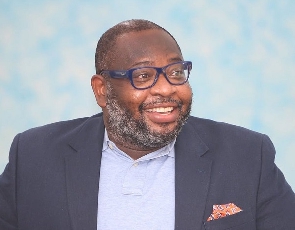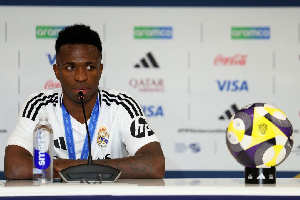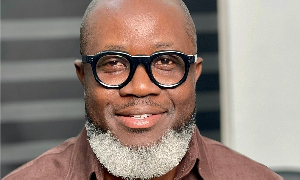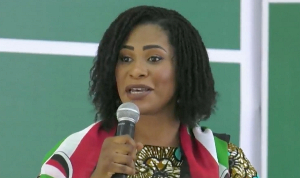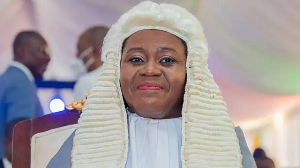Host of Good Morning Ghana programme, Randy Abbey, is worried about the impact of the 'identity crisis' surrounding the person of Reverend Victor Kusi Boateng, a member and secretary to the Board of Trustees of the National Cathedral.
He is especially concerned that the state had officially recognized Kusi Boateng at one point and also his supposed pseudonym, Kwabena Adu Gyamfi, despite presenting entirely different registration documents for national IDs.
According to records made available by North Tongu Member of Parliament, Samuel Okudzeto Ablakwa, the embattled clergyman is registered in cathedral incorporation documents as Victor Kusi Boateng yet his diplomatic passport bears the name, Kwabena Adu Gyamfi.
“If you are registering trustees, official registration with the Registrar of Companies and trustee gives you an ID because it is a requirement for the registration, which is what the law know him as.
“And we are told that there is a drivers’ license or so, which is a statutory document which is accepted by the Registrar of Companies, which the state takes and uses to register the said person (as Victor Kusi Boateng) and if you go to their website it is there, if you take the letterheads… that name is there.
“Then the same state decides to issue the person a diplomatic passport to facilitate his work as far as the cathedral is concerned but that diplomatic passport is then issued in an identity other than the one that the same state registered him as a trustee with the Registrar of Companies?” he lamented on the February 3 edition of the programme.
He cited how the Passport Office’s failure to flag the applications in respect of Kusi Boateng and Adu Gyamfi despite using a biometric verification method, affects, even compromises, trust in critical identification systems.
“If it turns out that, that same institution has issued a biometric passport in a particular name, with the same photograph and same fingerprints and then has issued a biometric passport in another one...
“If you look at all these issues, it questions either the complicity or the lack of integrity of the systems that we are running that we think are good,” he added.
Ablakwa goes after secretary to Board of Trustees of National Cathedral
Member of Parliament for North Tongu and Ranking Member on Parliament’s Foreign Affairs Committee, Samuel Okudzeto Ablakwa has over the last few months published instances of corporate governance and alleged financial infractions on the part of government and trustees in the building of the Cathedral.
Ablakwa is currently injuncted by the courts from further publications of private and personal ID details of Kusi Boateng, who has also sued the MP for defamation.
The lawmaker has since January 2023 disclosed statutory documentation purporting to prove that Rev. Victor Kusi Boateng, is operating under the pseudonym Kwabena Adu Gyamfi for criminal purposes.
The MP has so far released a number of passports, drivers’ license, Tax Identification Number data and details of company registration that Kusi Boateng (Adu Gyamfi) has used in the past and some he continues to use.
In the latest instalment of his posts, Ablakwa said a statement by the NIA on the Ghana Card status of Kwabena Adu Gyamfi confirmed that in their records, Victor Kusi Boateng did not exist.
He has justified his publications of Kusi Boateng’s documents with the view that the clergyman was using two names because he was engaging in criminal activities with one of the identities (i.e. Kwabena Adu Gyamfi.)
Ablakwa has stood by an accusation that the pastor’s company (JNS Talent Center) was paid an unmerited sum from the National Cathedral kitty, even though the secretariat has explained that the GHC2.6 million paid to Rev Kusi Boateng was a loan repayment.
According to Ablakwa, the Board of Trustees never discussed acquiring a loan facility, and at the time the loan was acquired, the Cathedral had about $6 million in its bank accounts.
SARA
General News of Monday, 6 February 2023
Source: www.ghanaweb.com

